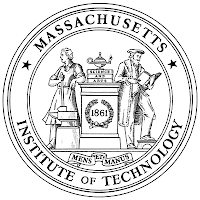Mark your calendars! The 3rd Alliance for the Study of Adoption and Culture Conference: Secret Histories, Public Policies will be held at MIT, April 29-May 2, 2010. This will be THE adoption conference.
It’s not too late to submit proposals, either. Below are details. Deadline is September 1, 2009.
Conference website is here
Conference date: April 29 – May 2, 2010 note new dates!
at the Massachusetts Institute of Technology, Cambridge, MA 02139
Proposal deadline: Sept. 1, 2009
Organized by the Alliance for the Study of Adoption and Culture
Conference Organizers:
Sally Haslanger (MIT), Marianne Novy (University of Pittsburgh), Charlotte Witt (UNH)
 Adoption has often, though not always, involved secrecy. How has secrecy or openness affected the history, experience and representations of adoption?
Adoption has often, though not always, involved secrecy. How has secrecy or openness affected the history, experience and representations of adoption?
•How have literature and film portrayed the impact of secrecy and disclosure on adoptees, birthparents, adoptive parents? What is the impact of recent revelations of secret histories in memoir, books such as The Girls Who Went Away, documentaries such as First Person Plural?
•How and why did adoption secrecy, and the practices it hides, develop differently in different cultures, countries, and even different states? Where are alternatives to secrecy practiced and how do they work? How has increasing openness in domestic adoption changed the experience of adoption? Why do laws sealing birth records have such staying power in the US?
- What public policies do our current adoption practices promote and what should they promote? What are the effects of secrecy and openness on the health and well-being of adoptees, birthparents and adoptive parents? What are the ethical implications of genetic testing for adoption practices? How can analysis of secrecy practice in adoption be applied to assisted reproduction?
- How should we distinguish secrecy, privacy, and confidentiality in relation to adoption?
- How does secrecy in adoption relate to race, economics, and sexual orientation? How does it work differently in transnational adoption, in adopting waiting children, children in foster care, and children with special needs?
- How can literary and film critics, philosophers, anthropologists, historians, sociologists, psychologists, political scientists, legal scholars, activists, creative writers, culture studies scholars, and others enrich our understanding of these issues?
Papers should discuss representations of adoption (including representations of birthparents) in literature, film, and other arts, and/or interactions between adoption practices and culture(s) in fields such as those listed. We are also interested in readings of memoir, poetry, and fiction dealing with adoption, and will consider musicians and performance artists.
Confirmed keynote speakers are Ann Fessler, author of The Girls Who Went Away: The Hidden History of Women Who Surrendered Children for Adoption in the Decades Before Roe v. Wade, and DeAnn Borshay Liem, filmmaker of First Person Plural. Other expected speakers include Ellen Herman, Emily Hipchen, Margaret Homans, Mark Jerng, Carol Singley.
Please send 200-word proposals for papers or samples of creative work (of less than 10 pages) dealing with adoption, with a brief CV, to [email protected].


This conference sounds quite interesting and wish I could attend. BD, will you be attending (hoping you will) and if so please give us your thoughts on this conference.
Thanks for your great publicity, Marley!
Marianne